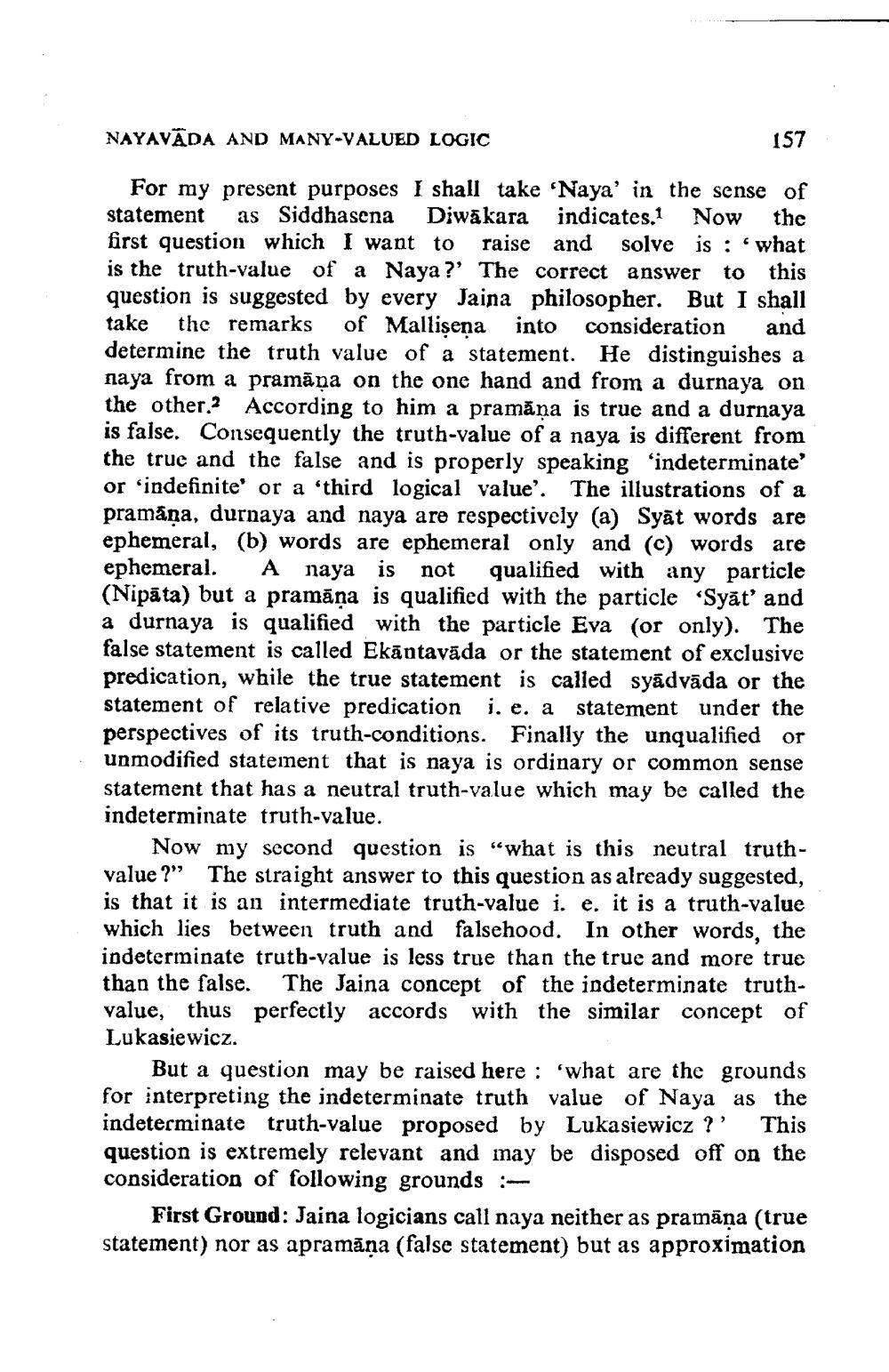________________
NAYAVĀDA AND MANY-VALUED LOGIC
157
For my present purposes I shall take 'Naya' in the sense of statement as Siddhascna Diwakara indicates. Now the first question which I want to raise and solve is : what is the truth-value of a Naya?' The correct answer to this question is suggested by every Jaina philosopher. But I shall take the remarks of Mallisena into consideration and determine the truth value of a statement. He distinguishes a naya from a pramāna on the one hand and from a durnaya on the other. According to him a pramāņa is true and a durnaya is false. Consequently the truth-value of a naya is different from the true and the false and is properly speaking 'indeter or indefinite' or a 'third logical value'. The illustrations of a pramana, durnaya and naya are respectively (a) Syāt words are ephemeral, (b) words are ephemeral only and (c) words are ephemeral. A naya is not qualified with any particle (Nipāta) but a pramāņa is qualified with the particle 'Syāt' and a durnaya is qualified with the particle Eva (or only). The false statement is called Ekāntavāda or the statement of exclusive predication, while the true statement is called syādvāda or the statement of relative predication i. e. a statement under the perspectives of its truth-conditions. Finally the unqualified or unmodified statement that is naya is ordinary or common sense statement that has a neutral truth-value which may be called the indeterminate truth-value.
Now my second question is “what is this neutral truthvalue ?” The straight answer to this question as already suggested, is that it is an intermediate truth-value i. e. it is a truth-value which lies between truth and falsehood. In other words, the indeterminate truth-value is less true than the true and more true than the false. The Jaina concept of the indeterminate truthvalue, thus perfectly accords with the similar concept of Lukasiewicz.
But a question may be raised here : 'what are the grounds for interpreting the indeterminate truth value of Naya as the indeterminate truth-value proposed by Lukasiewicz ?' This question is extremely relevant and may be disposed off on the consideration of following grounds :
First Ground: Jaina logicians call naya neither as pramāņa (true statement) nor as apramāņa (false statement) but as approximation




